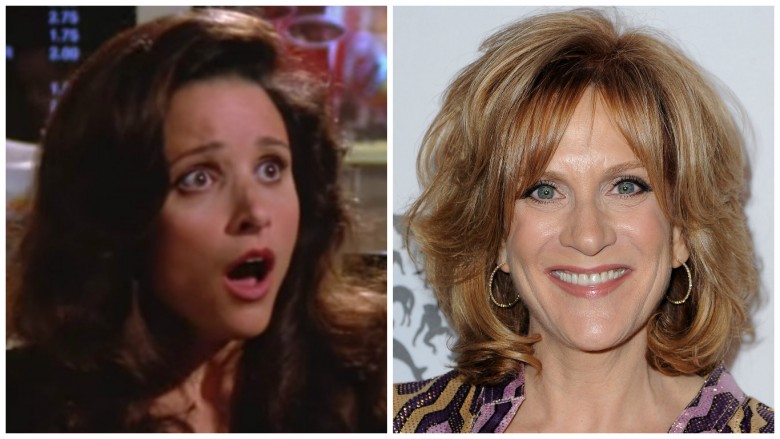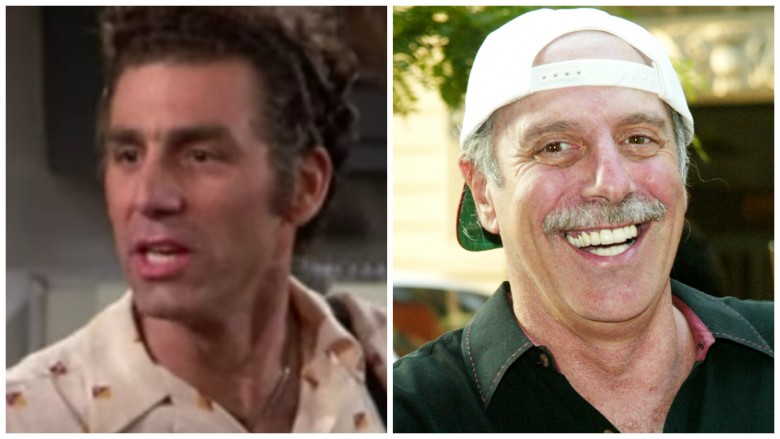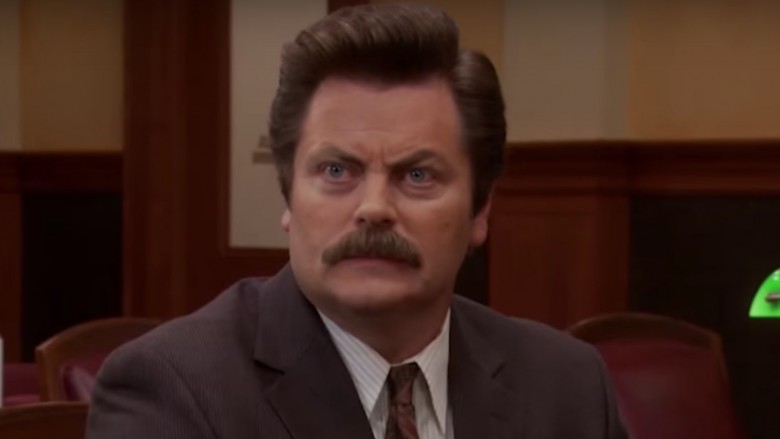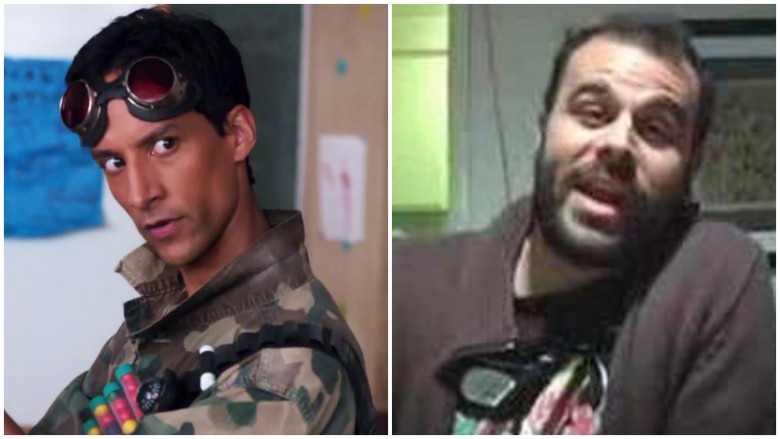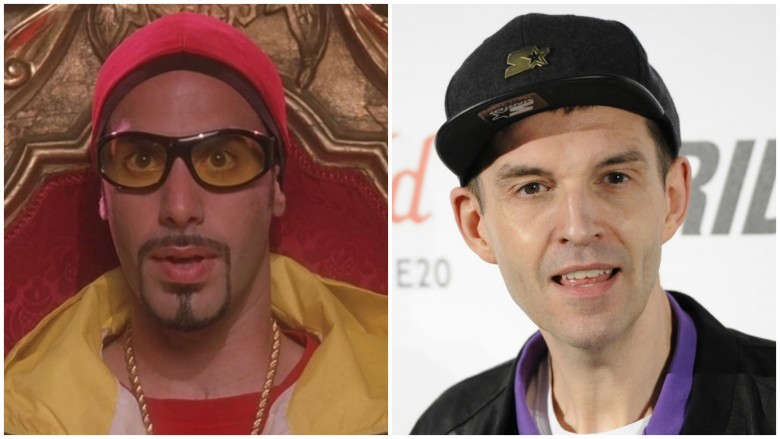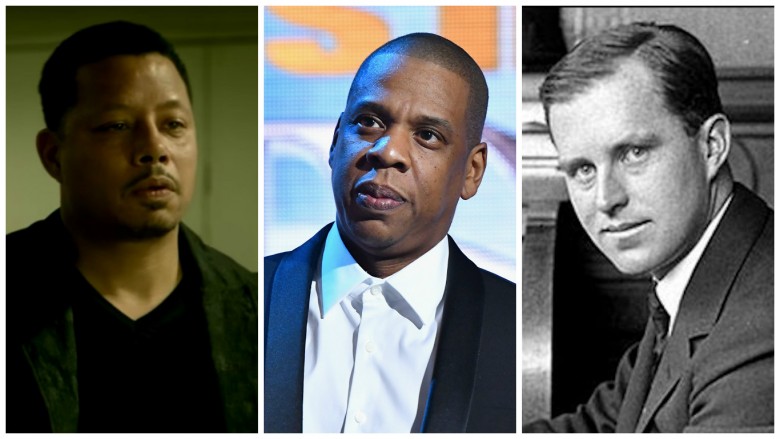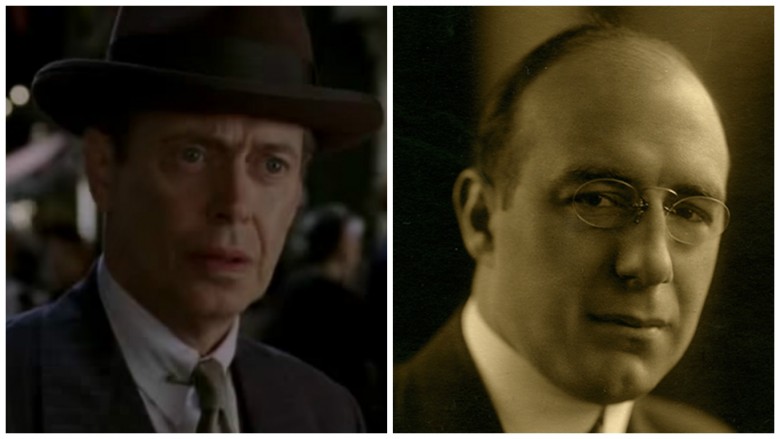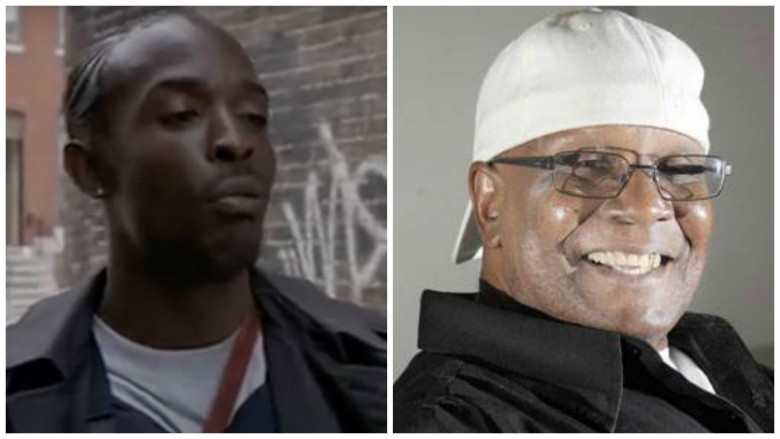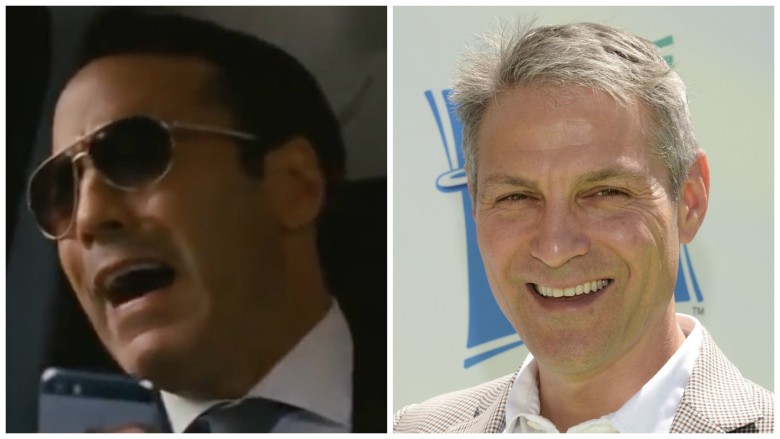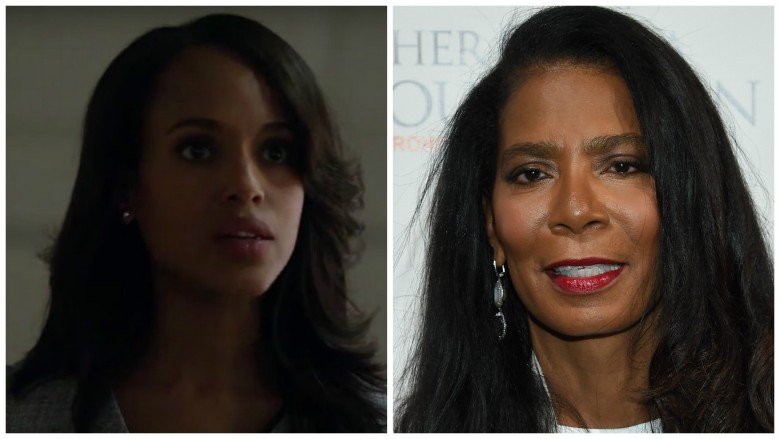TV Characters Inspired By Real Life People
There's an old adage to "Write what you know." It's a trick writers use when creating characters, a shortcut to making them seem real, relatable, and fleshed-out—and it's often accomplished by basing them on real human beings rather than inventing them out of whole cloth. Creators of television shows can find inspiration anywhere, and many of them have looked to friends, acquaintances, people in the news, or people they read about in books to make memorable characters. Here's a look at some of the most unforgettable TV characters based on actual people.
Elaine Benes, Seinfeld
It's obvious—or at least well known—that two of the four main Seinfeld characters are based on its creators: Jerry is a fictionalized Jerry Seinfeld, and George is a fictionalized Larry David. Elaine Benes (Julia Louis-Dreyfus) is also based on a comedian: stand-up Carol Leifer. In the '80s, she and Seinfeld were very good friends after having an on-again, off-again, romantic relationship, just like Jerry and Elaine. (Leifer actually wrote for Seinfeld for awhile, putting words into the mouth of a character based on herself.)
Kramer, Seinfeld
Cosmo Kramer (Michael Richards) is so strange, so one-of-a-kind, that he could never be conceived completely out of thin air. As their inspiration for the tall-haired, quirky neighbor, Seinfeld creators Jerry Seinfeld and Larry David used a real-life kooky friend named Kenny Kramer. "Kenny was always coming up with these oddball schemes that sounded like they were made up for a television show," David told The New York Times. "He'd talk you into doing something with him, and it would invariably turn out bad for you." Today he owns and operates a company that offers bus tours of Seinfeld sites throughout Manhattan.
Ron Swanson, Parks and Recreation
The initial character concept of Ron Swanson (Nick Offerman) is an ironic joke: He rails against government, government regulation, and government interference, and lives so off the grid that none of his coworkers know where he lives and all of his savings are in gold bars. And yet this ultra-libertarian works...for the government of the city of Pawnee, Indiana. But Ron is more than a sitcom creation. While they were creating the show, writers Greg Daniels and Michael Schur went to the city offices of Burbank, California, where they found an employee who felt the same way about government. The writers questioned her and she responded, "Well, I'm a libertarian, so I don't really believe in the mission of my job." She then added, with the deadpan and droll wit that would characterize Ron Swanson, "I'm aware of the irony."
Abed, Community
Community is about the most self-referential show in recent memory—and it could've been even more up inside itself had creator Dan Harmon gotten his way in the casting of one of the show's supporting characters. Abed Nadir, the pop culture-obsessed, reality-challenged student constantly commenting on the proceedings around him, comparing things to movies and TV shows almost as if he's aware he's in a TV show, are all characteristics of Harmon's friend, a short film maker and voice actor named Abed Gheith. TV Abed is so closely based on real Abed that Harmon wanted to cast Gheith on the show, but in his audition, he lost out to Danny Pudi. (Gheith says that, compared to his TV counterpart, he's "a bit more aware socially.")
Ali G, Da Ali G Show
Sacha Baron Cohen is deep in character when he plays dimwitted English guy/hip-hop culture appropriator Ali G—which is inspired by another English guy pretending to be somebody he's not. BBC disc jockey Tim Westwood is clearly a big part of Ali G—like the character, who's actually the son of prominent, respectable people and not as of-the-streets as he'd like people to believe, Westwood grew up middle-class, is the son of a Church of England bishop, and adopted a fake "hip hop" accent to spin rap songs and interview rappers on the BBC, a job he held from 1994 to 2013. (As for what he thinks about Cohen's spoof of his persona, Westwood had joked that he's actually the inspiration for Brüno, Cohen's fashion-obsessed Austrian character.)
Lucious Lyon, Empire
Empire co-creator Danny Strong has said he had two major inspirations for his Fox soap set in the world of a rap record label and the family that runs it: the decades-spanning saga of the Kennedys, and the backstory of Jay-Z. Hova's rise from a criminal past to one of the biggest rappers and entertainment moguls in the world directly led to the character of Lucious Lyon (Terrence Howard). "For me the story of people who have some sort of criminal past, or gangster past, are not limited to black culture," Strong explained. "You know, [Kennedy patriarch] Joe Kennedy, too, is another."
Nucky Thompson, Boardwalk Empire
Boardwalk Empire is a historical drama, set in Atlantic City, New Jersey, during the period in which alcohol was illegal...which led to the rise of organized crime in America, as underworld figures eagerly rose up to meet the demand for booze. One of those crime bosses is bootlegger Nucky Thompson (Steve Buscemi). And while the show has a historical backdrop and often involves real historical figures with their real names (Al Capone, for example), Nucky Thompson was not a real person. Boardwalk Empire creator Terrence Winter based the series on Nelson Johnson's history book Boardwalk Empire: The Birth, High Times, and Corruption of Atlantic City. The main figure in the book is Prohibition-era Atlantic City treasurer, politician, and bootlegger Enoch Johnson. (Fictionalizing a character like this allows writers a bit of creative license.)
Omar Little, The Wire
The Wire painted an intricate portrait of Baltimore, peering inside the city's various decaying civic institutions. Before getting into television, creator David Simon was a reporter for the Baltimore Sun, writer Edward Burns was a Baltimore homicide detective, and as a result, many Wire characters are thinly-veiled stand-ins for actual Baltimoreans: councilman Tommy Carcetti (Aiden Gillen) is based in part on Maryland politician (and 2016 presidential candidate) Martin O'Malley, for example.
Burns brought to the series the character of Omar Little (Michael K. Williams), based on a reformed criminal he'd arrested—and stayed in touch with—named Donnie Andrews. He was a "stickup man," who in 1986 was hired by one drug dealer to kill another. A remorseful Andrews was sentenced to life in prison (he was eventually released in 2005, in part because he served as a government informant and worked as a drug counselor to other inmates). Similarly, Omar wasn't a dumb thug or callously evil—he was a complex, likable guy who robbed drug dealers.
Ari Gold, Entourage
Co-creator Mark Wahlberg loosely based Entourage on his experiences as a young hotshot Hollywood actor. His agent, mega-hustler Ari Gold (Jeremy Piven) is not-so-loosely based on high-powered Hollywood agent and William Morris Endeavor boss Ari Emanuel. Entourage's other creator, Doug Ellin, says Gold is just as "fast-talking" and "always on the move" as Emmanuel. Perhaps because the character on the series is so conniving and sleazy, Emmanuel has attempted to downplay the fact that the character is based on him. "There's absolutely times when I'm over the top," he told the Los Angeles Times. "Not to the level that he is, but there are parts of the character that are me. People that know me, they know that I'm a character, but I'm not that character."
Olivia Pope, Scandal
Even soap opera characters can be based on real-life people, especially if their lives resemble a soap opera. On Scandal, Kerry Washington plays Olivia Pope, a "fixer" at the very top levels of government, politics, and society. Shonda Rhimes was inspired to create the series after reading about Judy Smith, an equally powerful and brilliant Washington negotiator. Smith has helped several prominent people negotiate sudden scandal, including Monica Lewinsky, Paula Deen, and Michael Vick. And like Pope, Smith worked for a president—George H.W. Bush. (Unlike Pope, Smith didn't have an affair with her Commander-in-Chief.)

